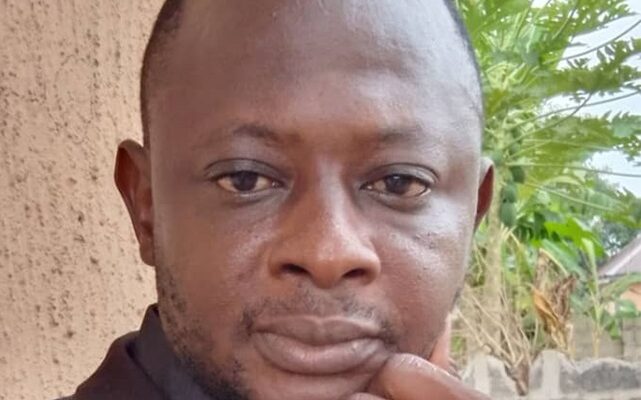The African continent, groaning beneath the weight of paradox, remains both blessed and bruised. It is blessed with abundant resources, resilient people, and vibrant cultures, yet bruised by a cycle of betrayal where man wounds his fellow man in a manner so relentless that it ripples through history like an unending dirge. The heaviest truth is not merely that Africa has been wounded by colonial masters and neo-imperial predators, but that Africans themselves have perfected the craft of turning against one another. What should be a sanctuary of solidarity has instead become a theatre where cruelty is both rehearsed and performed daily. As the poet W. H. Auden observed, “Those to whom evil is done, do evil in return.” The tragedy is that Africa has become the very stage where that prophecy is played out with devastating precision.
Man’s inhumanity to man in Africa is not an occasional storm; it is a climate. From palaces to peasant huts, from legislative chambers to market stalls, cruelty flows like a river whose tributaries are deceit, betrayal, and selfishness. Leaders who ought to be custodians of collective hope instead plunder treasuries with insatiable greed, while the governed, rather than rejecting corruption, often mirror the same venality in their own smaller domains. The Nigerian novelist Chinua Achebe once declared, “The trouble with Nigeria is simply and squarely a failure of leadership.” Yet, as history reveals, leadership failures are only magnified reflections of societal complicity, for a people often get the leaders they deserve.
Consider the architecture of betrayal that defined the slave trade. Africans sold fellow Africans into bondage, lured by mirrors, guns, and gin. While Europe’s ships facilitated the commerce of bodies, it was the betrayal within villages and clans that greased the machinery of oppression. That betrayal did not end with the abolition of slavery; it morphed into postcolonial politics where ethnic rivalry, nepotism, and the cannibalism of conscience became new currencies of exchange. The Kenyan novelist Ngũgĩ wa Thiong’o lamented that colonialism’s greatest crime was the “cultural bomb” that dismembered communities and implanted self-hate. Yet even after the colonizer’s flag descended, the inhumanity among Africans remained enthroned, proving that oppression had found a local home.
Wole Soyinka once thundered, “The man dies in all who keep silent in the face of tyranny.” Silence, in Africa, has too often been purchased cheaply. Dictatorships thrived because neighbours betrayed neighbours; informants grew fat on the sufferings of dissenters; and communities chose fear over courage. This betrayal, subtle yet lethal, is not confined to grand politics. It is visible in the market where traders adulterate goods, in schools where teachers exploit students, in hospitals where patients are extorted for care, and in homes where domestic cruelty festers behind closed doors. Africa’s tragedy is not only in the palatial corridors of power but also in the common alleys where dishonesty and exploitation have been normalised.
The irony is that cruelty has become democratised. The poor, often victims of elite plunder, have themselves become perpetrators of petty betrayals. A commuter cheats another of bus fare; a labourer sabotages his colleague for a small bribe; a neighbour rejoices at another’s downfall. These acts may seem trivial, yet they are tributaries feeding into the ocean of Africa’s moral decay. As a Yoruba proverb warns, “When the rat laughs at the cat, there is a hole nearby.” The oppressed laugh at the oppressor’s downfall only because they secretly plan to occupy his seat of tyranny. Thus, the wheel of inhumanity spins unbroken, grinding generations into dust.
History offers Africa no shortage of mirrors. Rwanda’s genocide of 1994 remains one of the bloodiest testaments to what happens when suspicion is weaponised and neighbour turns machete against neighbour. Liberia’s civil war echoed the same refrain: brothers devouring brothers under the intoxicating spell of power. In Sierra Leone, children were conscripted to butcher their own kin, proving that cruelty, once seeded, grows like wild yam without restraint. These events are not aberrations; they are the flowering of seeds long planted in soil watered by betrayal. They remind us that inhumanity is not alien to Africa but disturbingly indigenous, sustained by structures of greed and silence.
Nelson Mandela, after 27 years of incarceration, emerged not with vengeance but with reconciliation. He warned, “Resentment is like drinking poison and then hoping it will kill your enemies.” His life was a protest against the cycle of cruelty, a rare example of how one man refused to return evil for evil. Yet Africa has largely failed to heed that lesson. Instead of breaking the chain, many have polished it into ornaments of revenge, dragging the continent deeper into collective ruin.
The philosopher Frantz Fanon diagnosed the malaise with piercing clarity. In The Wretched of the Earth, he wrote that postcolonial elites “have no programme, no invention, they simply reproduce the colonial lifestyle.” This reproduction is not merely political but psychological. Elites who once decried the violence of colonialism often become even more ruthless in their rule, proving Fanon’s thesis that without a radical restructuring of values, independence merely exchanges one master for another. Thus, Africa’s independence became a masquerade of freedom where betrayal wore the mask of sovereignty.
But let us not confine cruelty to elites alone. The market woman who cheats her customer, the teacher who sells grades, the policeman who extorts motorists, the journalist who sells truth for a brown envelope—all are guilty of perpetuating man’s inhumanity to man. These micro-betrayals accumulate into macro-catastrophes. As an Igbo proverb cautions, “A man who fetches ants-infested firewood should not complain when lizards visit his house.” The people’s complicity invites the lizards of tyranny, and soon the house of society becomes uninhabitable.
One cannot ignore the role of poverty in fertilising this inhumanity. Poverty reduces morality into a negotiable commodity. A hungry man will betray his conscience for bread, just as a desperate woman will sacrifice integrity for survival. Yet, poverty alone cannot explain the depth of betrayal. After all, cruelty also festers among the wealthy, whose vaults are stuffed with looted billions, yet whose appetite for more remains unquenchable. Greed, not hunger, is the truest currency of inhumanity.
In moments of sober reflection, Africa reveals its own awareness of this tragedy. Its proverbs are full of warnings. The Swahili say, “When elephants fight, it is the grass that suffers.” The Igala caution, “The knife may forget, but the yam does not.” These proverbs testify that Africans have long known the weight of betrayal. Yet knowing has not translated into transformation. The knife of cruelty continues to cut, and the yam of memory continues to ache.
The challenge, therefore, is moral and structural. Structural reforms—better governance, stronger institutions, equitable distribution of resources—are necessary but insufficient. Without moral rebirth, structures will collapse under the weight of greed. The African soul must undergo a cleansing. The marketplace must rediscover honesty; the classroom must rediscover integrity; the family must rediscover love; the polity must rediscover justice. Only then can the cycle of betrayal be broken.
Mandela’s magnanimity, Achebe’s warnings, Soyinka’s thunder, Ngũgĩ’s lament, Fanon’s diagnosis, Auden’s haunting lines—all converge on a singular truth: man’s inhumanity to man is both the wound and the weapon. Africa bleeds not merely because outsiders plunder her but because insiders betray her. Until the continent confronts this paradox, her story will remain one of wasted potentials and squandered destinies.
What emerges, therefore, is a civilisation at the crossroads. One path leads to further decay, where betrayal remains the oxygen of politics and cruelty the grammar of society. The other path beckons toward renewal, where accountability, solidarity, and integrity become the new ethos. But the choice is not abstract; it lies in daily decisions. Shall the trader cheat or trade honestly? Shall the leader loot or govern justly? Shall the citizen betray or defend his neighbour? These questions are the hinges upon which Africa’s destiny swings.
As the curtain falls on this meditation, one truth remains stark: cruelty is not inevitable. Africa is not condemned to betrayal. She can choose a different story. But to do so, she must summon the courage to look in the mirror, acknowledge complicity, and rewrite her narrative. The continent must break the spell of Auden’s lament and prove that those who suffered evil need not reproduce it. Until then, the lament will persist: Africa, betrayed by her leaders, betrayed by her people, betrayed by herself.
– Inah Boniface Ocholi writes from Ayah – Igalamela/Odolu LGA, Kogi state.
08152094428 (SMS Only)




